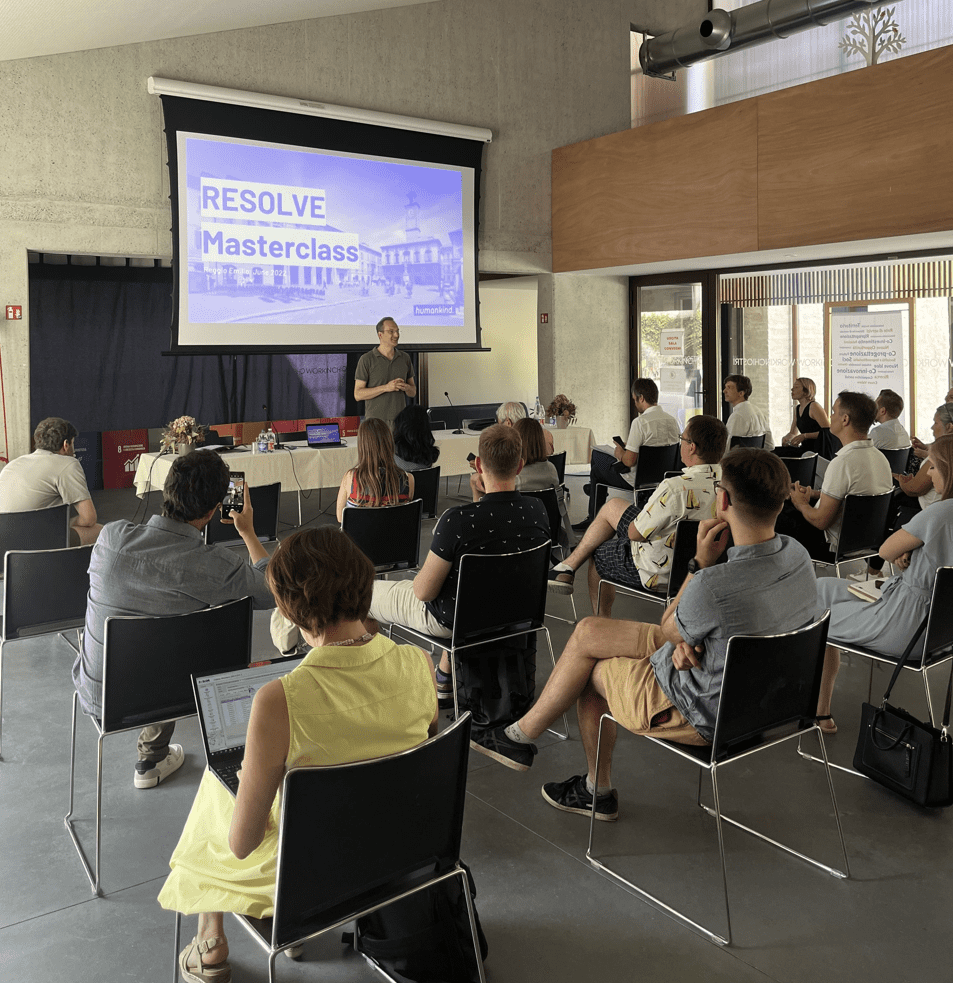On February 15th and 16th, Almada City Council will host RESOLVE 3rd Peer Review.
Several experts coming from Czech Republic, Poland, Slovenia and the Netherlands will support the Department of Regional, Port and Transport Economics of Rotterdam University in providing advice to the city on strategies for retail-related mobility.
BACKGROUND
Over the past years, the City of Almada has been improving its urban infrastructure to favour sustainable mobility, committing to the principles of sustainable development in many ways. To improve public transport, the city filled the gaps between the different public transport networks introducing a tram system in 2008. This encompassed the transformation of the public space along the tram corridor, reallocating space to soft, or active transport modes – although not officially a SUMP, the introduction of the tram was preceded by the 1st generation Parking and Circulation Plan in 2002, whose objective was to diagnose problems and present proposals to increase the use of public transportation and soft modes (cycling and walking). Building the tram infrastructure allowed the creation of new pedestrian areas, namely the city centre, which was transformed into a mixed area with a speed limit of 20 km/h, with restrictions to car parking and circulation. Although part of this effort has since been revoked, there are still pedestrianized areas in Almada that constitute a good example of how sustainable mobility actually boosts the local economy.
Almada is currently developing its 2nd generation Mobility Plan, following the SUMP guidelines elaborated by the European Commission.
The SUMP should identify a set of proposals and recommendations of solutions which give the mobility system of Almada the most appropriate responses to local needs, safeguarding the following key principles: energy efficiency, environmental and economic equity, universal access to mobility and accessibility to the multiple functions of the territory.
The key goals are:
- diversifying the transport offer
- achieving an adequate integration between transport modes
- improving accessibility
- reducing car use by boosting modal shift from private cars to PT and soft modes
- improving public space, creating safety and adequate conditions for pedestrians and cyclists
- promoting bike use for daily commuting (< 6 km)
- enhancing the city logistics processes mainly related to “last mile” freight distribution
- enhancing the quality of life in Almada, mitigating CO 2 emissions and contributing to the EU burden sharing of the Kyoto Protocol.
PEER REVIEW
Different priorities were identified by Almada City Council and will be discussed with experts:
- how to demonstrate to the retail sector that less cars and pedestrianization/mixed areas with priority to the pedestrian can simultaneously help to achieve mobility goals, improve their business and, overall, a more enjoyable and vibrant city centre
- how to involve citizens and gain their acceptance and support to this mobility strategy
- how to motivate them to travel in more sustainable ways when shopping
- how to communicate the personal benefits for all
- how to develop strategies that promote fewer vehicles in logistics operations in the city center and increase the efficiency in the delivery of goods in retail areas and neighbourhoods
- how to accelerate the uptake of zero emission vehicles (e.g. electric vans, cargo-bikes) in the last mile delivery, in order to reduce traffic congestion, GHG emissions, pollution and noise
- how can Almada City Council improve the SUMP process in order to reach a better result
In the next weeks an overview on the Peer Review results will follow!


